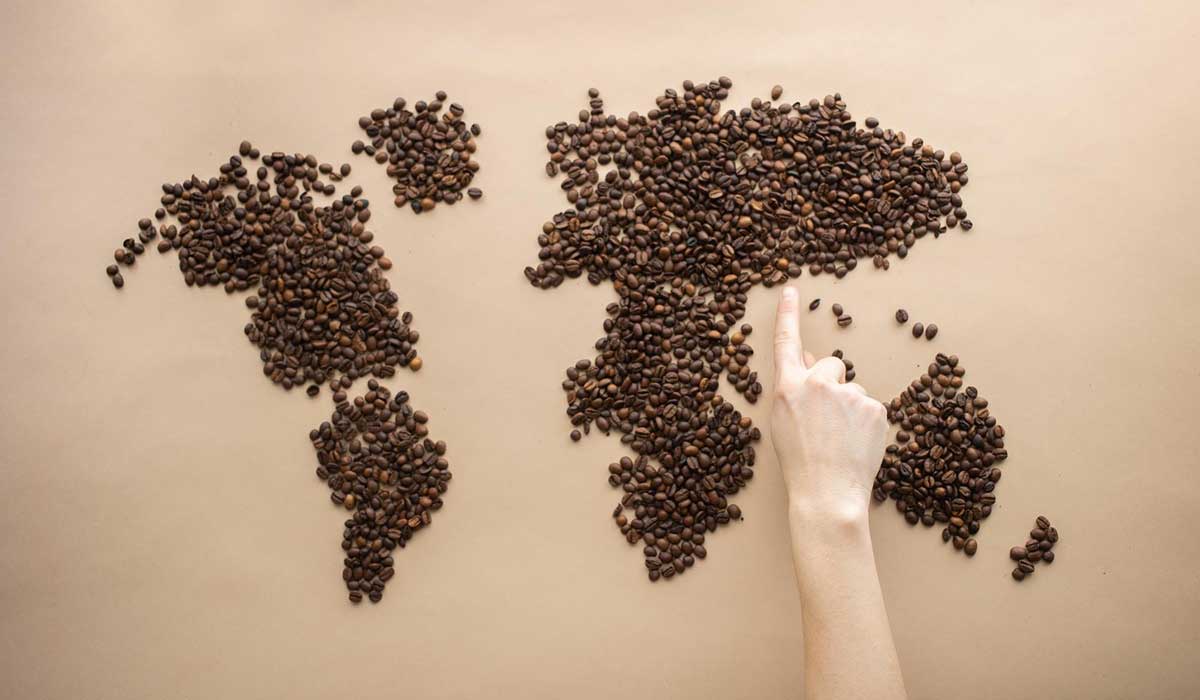International Coffee Organization: A Champion of Sustainable Development in the Coffee Industry

The International Coffee Organization (ICO) is an intergovernmental organization established with the aim of creating a sustainable global economy for coffee. Founded in 1963 under the auspices of the United Nations, the ICO today comprises more than 50 member countries, collectively accounting for 97% of global coffee production. Its headquarters is located in London.
History and Establishment of the International Coffee Organization
The International Coffee Organization (ICO) was established in 1963 under the supervision of the United Nations with the goal of fostering cooperation between coffee-producing and coffee-consuming countries. The organization administers the International Coffee Agreement (ICA) and works to stabilize the coffee market while promoting sustainable development in the industry.
Structure and Members of ICO
The ICO consists of both producing and consuming countries. As of February 2022, the organization includes 42 producing members and 7 consuming members. Major producing countries include Brazil, Colombia, Ethiopia, and Vietnam, while key consuming members include the European Union, Japan, and Switzerland.
Objectives and Mission of ICO
The primary goal of ICO is to strengthen the global coffee sector and enhance its sustainability across economic, social, and environmental dimensions. Through international cooperation, the ICO seeks to address the challenges facing the coffee industry and create opportunities for growth and development for all stakeholders.
Key Roles and Responsibilities of the International Coffee Organization
The International Coffee Organization plays a crucial role in the global coffee industry. Its key responsibilities include:
- Data Collection and Analysis: The ICO gathers and analyzes information related to coffee production, exports, imports, and consumption to facilitate better understanding of the market.
- Promoting Sustainability: By implementing various projects and programs, the ICO supports the livelihoods of coffee farmers and environmental protection efforts.
- Providing a Platform for Collaboration: The organization offers a forum for negotiation and cooperation among member countries to address trade-related issues in the coffee sector.
Core Missions of the International Coffee Organization
- Promoting coffee consumption and improving quality standards worldwide
- Collecting, analyzing, and publishing statistical data and market information
- Offering a platform for consultation, negotiation, and discussion among governments and the private sector on coffee-related issues
- Encouraging member countries to develop a sustainable coffee economy
- Increasing market transparency and improving access to relevant information
- Promoting a resilient and adaptable coffee economy
The International Coffee Organization’s Actions Toward Sustainable Development
ICO is widely recognized as a key advocate for sustainable development within the global coffee industry. The organization has implemented extensive initiatives aimed at improving the livelihoods of farmers, protecting the environment, and ensuring a sustainable future for the coffee sector. Below are some of the most significant actions undertaken by the International Coffee Organization in this area:
1. Supporting Smallholder Farmers
A large percentage of the world’s coffee is cultivated by smallholder farmers. ICO assists these farmers through educational programs and capacity-building initiatives, helping them improve productivity, enhance quality, and achieve better income levels.
2. Promoting Sustainable Agriculture
In collaboration with its member states, ICO promotes sustainable farming methods such as shade-grown coffee. These practices help preserve biodiversity and reduce the environmental impact of coffee cultivation. The organization also encourages farmers to minimize the use of chemical pesticides and fertilizers.
3. Establishing Certification Programs
ICO supports the expansion of certification programs such as Fair Trade and Organic. These initiatives ensure the sale of higher-quality coffee at better prices while supporting farmers committed to environmental and social responsibilities.
4. Research and Knowledge Development
The International Coffee Organization conducts broad research and educational activities to enhance the knowledge base of farmers and stakeholders across the coffee value chain. These efforts aim to discover innovative and sustainable solutions to the industry’s ongoing challenges.
Parto Padideh Company, recognizing the importance of sustainable development, has aligned its operations with the vision and principles of the International Coffee Organization.
By sourcing coffee from farmers who adhere to sustainable practices, the company plays a pivotal role in promoting responsible coffee production and consumption in Iran and across the region. It has also participated in events such as the Iran Specialty Coffee Expo, helping connect domestic actors with international coffee suppliers and further aligning with global trends.
Iran’s Engagement with the International Coffee Organization
Although Iran is not a coffee-producing country, its coffee consumption culture is growing rapidly. Therefore, Iran’s active engagement with ICO and the broader international coffee community could significantly enhance the country’s presence in the global coffee arena. Participating in platforms like the Iran Specialty Coffee Expo allows Iranian stakeholders to establish partnerships with international coffee suppliers and stay informed about industry innovations.
Leading companies such as Parto Padideh have taken the initiative to establish direct relationships with major coffee-producing countries and contribute to the transfer of global knowledge and technology to Iran’s coffee industry.
Although Iran is not currently a formal member of the International Coffee Organization, the increasing trend in domestic coffee consumption presents an opportunity. By joining ICO, Iran could benefit from enhanced standards, quality improvements, and broader access to international markets and expertise.
Challenges Facing the International Coffee Organization
The International Coffee Organization faces a number of significant challenges in its mission to promote a sustainable global coffee economy. Some of the key obstacles include:
1. Volatility in Coffee Prices: Sharp fluctuations in global coffee prices can negatively affect the livelihoods of smallholder farmers and destabilize local economies.
2. Climate Change: Adverse climate conditions threaten coffee production by disrupting harvest cycles, increasing pests and diseases, and reducing yields.
3. International Regulations: Emerging policies, such as the European Union’s legislation aimed at preventing deforestation-linked imports, can impact global coffee trade and pose compliance challenges for producers.
Conclusion
The International Coffee Organization plays a pivotal role in advancing sustainable development in the coffee industry, striving to bring lasting and positive change to all stakeholders. Through its comprehensive approach—from supporting smallholder farmers and promoting sustainable farming practices to fostering innovation and knowledge-sharing—it seeks to transform the industry’s challenges into opportunities for growth and resilience.
Despite international hurdles and restrictions, Iran’s coffee sector stands to benefit greatly from stronger engagement with the global coffee community. Iranian companies and coffee brands can leverage innovative methods and align their operations with sustainability goals to help transfer global knowledge and experience into the domestic industry.
Ultimately, the sustainable growth of Iran’s coffee sector requires active collaboration among all local stakeholders—from government agencies and private businesses to research institutions. With the development of infrastructure, quality improvement, and localized knowledge production, Iran can take effective steps toward building a robust and sustainable coffee industry and strengthening its international presence.
Frequently Asked Questions About the International Coffee Organization
1. Does the International Coffee Organization focus only on producers?
No. The International Coffee Organization brings together both producing and consuming countries to foster international collaboration in the coffee sector.
2. How can I access statistics and reports from the International Coffee Organization?
You can access official data and publications by visiting the organization’s website at ico.org.
3. Does the International Coffee Organization support smallholder farmers?
Yes. Through various projects and training initiatives, the International Coffee Organization helps improve the livelihoods of smallholder farmers by enhancing productivity and sustainability.



